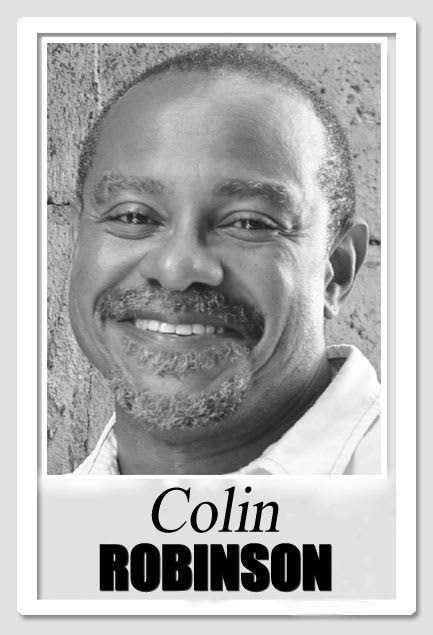Serenity and courage

A shamelessly Christian prayer for the covid19 epidemic appeared on a government internet site this week.
Of course, it elicited one of those endless scorched-earth online arguments that have been on the rapid increase as we sit trapped in our crowded and lonely homes, anxious about livelihood, health, money and sex, glued to an incessant torrent of unnecessary government press conferences, overnight epidemiologists, fake news – and now, Ian Alleyne’s freshly made-up tears of helplessness.
The goal of information-sharing seems, so much more often than not, to be to explicitly elicit anxiety and helplessness – to pick out some new complexity, some new vulnerability, some new peril about the epidemic.
Moreover, everyone has something to say, usually to argue. Often with a certainty beyond our competence. In an unthinkingly routine way with the most disdain, dismissal and disgust towards the person with whom we are disagreeing that we can manage. And always, always over things over which we have no power.
The prayer we all ought to be chanting is that 80-year-old verse by Raymond Niebuhr adopted by addicts. Because there are so many things we simply cannot change.
Interestingly, I learned this week, an early version of the Serenity Prayer asked first, not for serenity to accept things we can’t change, but “courage to change what must be altered,” then “serenity to accept what cannot be helped and the insight to know the one from the other.”
Of the many things covid19 that people shared this week, a Jamaican psychologist posted to a WhatsApp group a Canadian government flyer suggesting ways we need to help young people shift their mindsets to ones that enable better coping with the epidemic – from "I’m stuck at home" to "I get to be safe in my home"; from "I will run out of items" to "I have everything I need."
It seemed preposterous. Most young people who’ll encounter state intervention live lives deprived of critical things they need, including safety in their homes. To switch their minds that they are in fact safe and comfortable would be reckless, even if we could.
My friend in San Francisco shared the challenges of being home with his seven-year-old (the one who wanted to believe in Santa Claus). He sent an NPR piece by a Syrian physician with stage IV cancer living in the US. It offered something immediately more meaningful and actionable than the Canadians’ prescriptions for engaging others in these emotional times.
“We can try to make room for everyone to express their raw emotions, their honest feelings. Let’s find creative ways to do that. Art and writing can help some, and so does humour. Listening to the person who is suffering is also good. Do not jump to volunteer solutions. Just be there and listen. We can stand in solidarity with those who suffer. We can advocate to ensure accommodations are made for those who need them and that the essentials are available for everyone...If you have two rolls of toilet paper or two containers of hand sanitiser, give one of each to someone who needs them more.”
“This epidemic reminds us that no one is immune to illness,” Morhaf Al Achkar continued.
“As our society faces an illness that is serious and devastating, we, cancer patients, can share a few lessons from dealing with our infirmities. With support and care, you can find the strength to carry on. You keep going, and you give it your best shot. And always try to remember: Today is a gift.”
Here is my prescription which I find myself offering increasingly as I jump into social media fights. Let us shift our attention away from debating each other over all these things on which we aren’t experts, and which we are quite unlikely to change. Away from these public performances of anxiety. Let’s be firm with mischief, and insist on the truths we do know about the virus. But let’s be less rigid and more open to the fact that we don’t yet know a whole lot yet with certainty.
Let us find instead things in the local epidemic that need our action and leadership, solutions that need our voice. Instead of beating up over questions beyond our competence, let’s discover problems we can solve, advocate simple solutions to problems that haven’t received attention. How can we use our voices, for example, to make sure every maxi taxi driver has access to hand sanitiser for their vehicle? They can’t buy it. One friend shared this.
I didn’t hear Idris Elba, Tom Hanks, Plácido Domingo, even Manu Dibango, cry, What have I done? Why did “someone like me” get an airborne disease? The survivors use their celebrity to promote behaviour change and make risk real. Our national athlete and Ian Allyene can too.
And, please, let’s all just be kinder with each other.


Comments
"Serenity and courage"